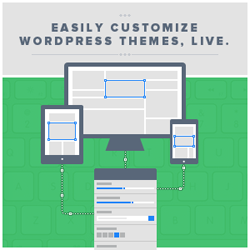Disclosure: We are a professional review site that receives compensation from the companies whose products we review. We test each product thoroughly and give high marks to only the very best. We are independently owned and the opinions expressed here are our own.
Attention spans continue to shrink in an online world where easy information abounds. Slowly loading websites run the risk of losing visitors, resulting in higher bounce rates as people quickly click away in search of faster loading websites that provide a better user experience. If a site takes more than three seconds to load, 40 percent of users will leave. This can heavily impact a business’s bottom-line in terms of conversion and engagement.
Not to mention, site speed factors heavily in Google’s search rankings. A mobile site should load in under one second, and yet the average loading time runs around four seconds. That’s a big gap, and with websites using more images and videos all the time, the task of speeding up a site can seem overwhelming, but help is available whether a site owner wants to take the time to learn the skills to improve site loading time or hire the task out to a professional.
Tests for Speed Tools
From the planning stage, to registering a domain name, to the initial building of a website, can be an exciting time. Unfortunately, progress can also bring headaches as a site owner starts to learn more about the design and function of websites. Google’s PageSpeed Insights is a good starting point. Keep in mind results are not updated in real-time and reflects performance over the past thirty days, with updates weekly.
Other helpful tests for speed tools include GTmetrix covers a great mix of speed and loading ability by grading everything from A to F while also offering helpful details on how to address what needs fixed. Pingdom is another popular and thorough tool that provides valuable insights to best practices. WebPageTest allows a wide variety of browsers to be tested, and YSlow is yet another page speed tool that will provide insight in areas where a page can be improved.
Areas to Address First
A caching plugin is a must. The ever-popular WP Super Cache is free and easy to configure. Another great free choice is W3 Total Cache, but it can be a bit trickier to set up. Yet another great caching option is the paid plugin WP Rocket. Another area to focus on is image optimization by resizing large pictures before uploading to a website’s media library. Plugins like WP Smush can then further optimize and compress images upon upload. If using WordPress, be sure to look into database optimization as well since the program stores numerous posts revisions.
Plugins have the tendency to increase page loading times, so take the time to make sure each one in use is necessary. The theme that’s been chosen for a website should be evaluated as well. Numerous themes create too many http requests or maintain a huge page size. Beware of sliders and unnecessary animation. Changing themes often entails a great deal of customization, so be sure to proceed cautiously in this area and weigh the positives and negatives. A good theme won’t require the addition of tons of plugins.
Evaluate Your Webhost
It’s important to employ needed optimization tactics when it comes to improving page loading speed, but it’s equally worth noting that a web host may be to blame for slow page loading times. Take the time to fully research how a given hosting company compares to another. It can be a pain to switch, but it’s also painful to be losing site visitors thanks to slow page loading. Being on a shared server with many other websites is often the culprit for slowing loading time down.
In addition, take the time to evaluate the hosting package you’ve gone with. In the beginning of a website, it’s okay to go with a more budget-minded package, but once traffic starts to pick up, it’s inevitable that a more fitting hosting package will be needed to ensure good speed performance. Many options are available, and you should constantly be reevaluating your website’s hosting package needs based on traffic.
Call in the Professionals
As clichéd as it may sound, time really is money. Even if you can figure out how to implement various ways to increase site loading speed to provide a better user experience, you may not have the time to do so. Chances are your skills are better left to improving some other aspect of your brand.
A professional web developer will be able to assist you with the areas mentioned above, and they will also be able to assist you with coding, etc., which may understandably make your head swim. Not to worry. That is what a professional is there for.
Many more tools and areas exist when it comes to pinpointing ways to get a site to load faster. Only one area can be addressed at a time. For a more in-depth overview, check out this Beginner’s Guide to Website Speed Optimization or browse the helpful posts over at Page Speed Optimization.
What are some other speed tools you would recommend in order to help provide website visitors with a better user experience?
This article was written by a guest writer and Evolutionary Designs may or may not agree with what is written. Please contact us if you have any questions about the writer or if you want to guest write for us.
Author Bio:
Sarah Saker is a business coach and freelance writer that specializes in helping SMBs setup processes for customer support and predictable growth. When not writing or coaching, Sarah can be found on her (small but growing!) family farm. Connect with Sarah on about.me/ssaker for coaching or writing help.








Leave a Reply